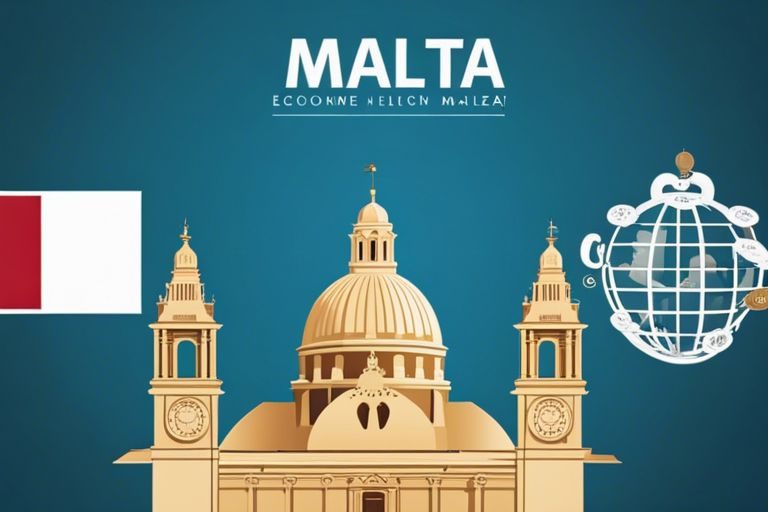Malta’s Economic Updates – A Quick Overview

Just as the global economy faces uncertainties, Malta strives to navigate its own economic landscape. This quick overview outlines the latest trends and key indicators shaping the financial future of the Mediterranean island. From tourism numbers to investment opportunities, stay ahead with this concise overview of Malta’s economic updates.
Malta's Economic Performance
Gross Domestic Product (GDP) Analysis
To analyze Malta’s economic performance, it’s crucial to look at the Gross Domestic Product (GDP) figures. GDP is a key indicator that shows the total value of goods and services produced within the country’s borders. Over the past few years, Malta has shown steady GDP growth, reflecting a strong and resilient economy.
Key Industries and Sectors
Understanding Malta’s key industries and sectors can provide valuable insights into the country’s economic landscape. The tourism industry is a major contributor to Malta’s GDP, attracting millions of visitors each year. Additionally, the financial services sector and the gaming industry play significant roles in driving economic growth. These industries have been instrumental in diversifying Malta’s economy and creating job opportunities for its citizens.
Monetary and Fiscal Policies
Central Bank Initiatives
The Central Bank of Malta plays a crucial role in implementing monetary policies to ensure price stability and promote economic growth. Its initiatives include setting interest rates, regulating the money supply, and overseeing the banking system. By adjusting these key parameters, the Central Bank aims to manage inflation levels and support the overall economy.
Government Budget and Spending
Government budget and spending policies in Malta are vital for maintaining a healthy fiscal position and supporting key public services and infrastructure development. The government carefully allocates funds to various sectors, including healthcare, education, and transportation. By balancing revenue sources and expenditures, the government aims to promote sustainable economic growth and meet the needs of the population.
Plus, the government focuses on prudent fiscal management to control the budget deficit and public debt levels. By implementing strategic spending cuts and revenue-boosting measures, Malta can maintain a stable financial position and continue its path towards economic prosperity.
Investment and Trade
Foreign Investment Trends
The foreign investment landscape in Malta has seen significant growth in recent years. Foreign investors are increasingly drawn to Malta’s stable political environment, attractive tax incentives, and strategic location within the European Union. Furthermore, the government’s ongoing efforts to simplify regulatory processes and improve infrastructure have further encouraged foreign investment.
Trade Balance and Partners
Foreign trade plays a vital role in Malta’s economy, with the country heavily reliant on imports for its energy and food requirements. The trade balance has traditionally been negative, with imports exceeding exports. Malta’s key trading partners include other EU countries, the United States, and China, with a focus on machinery, petroleum products, and pharmaceuticals.
Plus, recent trade agreements with emerging markets have presented new opportunities for Malta to diversify its trade partners and strengthen its economic ties worldwide.
Labor Market and Employment
Unemployment Rate and Job Growth
Keep a close eye on Malta’s unemployment rate and job growth as they are key indicators of the country’s economic health. Currently, Malta’s unemployment rate is at a low of 4.1%, a positive sign of a growing economy. The job market in Malta has shown consistent growth over the past few years, with various sectors seeing increased employment opportunities.
Skills Demand and Workforce Education
Skills development is crucial for meeting the demands of Malta’s evolving job market. Employers are increasingly seeking candidates with specialized skills and qualifications. Investment in workforce education and training programs is vital to bridge the skills gap and ensure that the Maltese workforce remains competitive in the global economy.
To further address the skills demand, the Maltese government has been collaborating with industry stakeholders to identify skills shortages and develop targeted training programs. Ensuring that the workforce is equipped with the necessary skills will not only boost employment opportunities but also drive economic growth and innovation in Malta.
Challenges and Opportunities
Economic Challenges Ahead
Notwithstanding Malta’s positive economic performance, there are challenges ahead that need to be addressed. The country faces potential risks from its heavy reliance on sectors like tourism and financial services, which can be vulnerable to external shocks and changes in global regulations.
Emerging Opportunities for Growth
An evolving global economy presents Malta with emerging opportunities for growth in sectors such as technology, renewable energy, and healthcare. These industries have the potential to diversify the economy, create new jobs, and attract foreign investment.
Challenges
Plus, the government must address challenges related to infrastructure development, workforce skills enhancement, and sustainability practices to fully capitalize on these emerging opportunities. Strategic planning and investment in these areas will be crucial for Malta’s long-term economic growth and competitiveness.
To wrap up
As a reminder, Malta’s economic updates reflect a dynamic and resilient economy that has navigated global challenges with steady growth and innovation. With a focus on sectors like finance, tourism, and technology, Malta continues to attract investment and opportunities for economic expansion. As the country faces the uncertainties brought about by the global pandemic, it is clear that Malta’s economic landscape remains adaptable and promising for both local businesses and international stakeholders. Keeping an eye on these economic indicators will provide valuable insights for those interested in understanding Malta’s economic landscape and its potential for growth in the future.
Recommended Posts

The Colors of Maltese Fiestas
May 3, 2024


